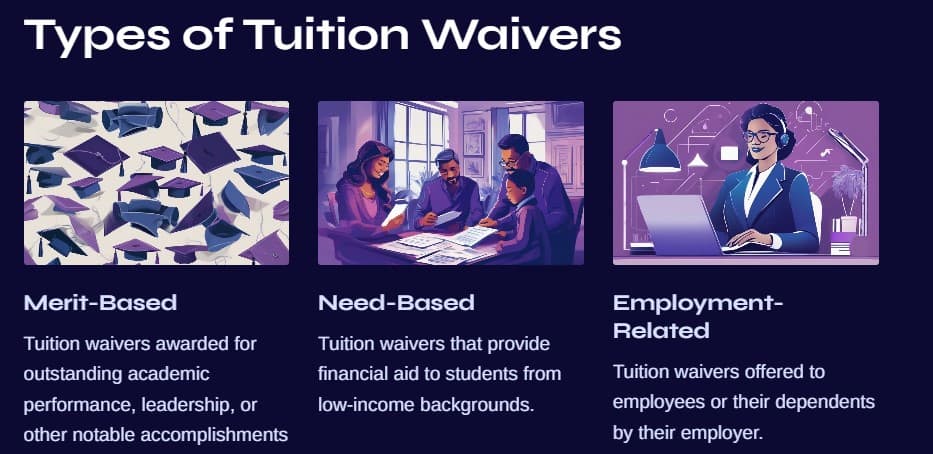There’s a system in place at public universities that offers domestic students a valuable opportunity: tuition waivers. These waivers play a crucial role in reducing the financial burden on students, allowing them to pursue higher education with minimal out-of-pocket costs. In this blog post, we will research into how tuition waivers work, who qualifies for them, and the significant impact they have on domestic students seeking to further their education at public universities.
Key Takeaways:
- Financial Relief: Tuition waivers provide domestic students with significant financial relief, allowing them to attend public universities with minimal out-of-pocket costs.
- Increased Access to Higher Education: By reducing the financial burden, tuition waivers help broaden access to higher education, especially for students from low-income backgrounds.
- Support for Academic Success: With reduced financial stress, students can focus more on their academic pursuits, leading to improved performance and higher graduation rates.
- Promotion of Diversity: Tuition waivers encourage a more diverse student body at public universities, creating a richer learning environment and fostering a sense of inclusivity.
- Long-Term Benefits: Investing in domestic students through tuition waivers can have long-term benefits, such as a more educated workforce and higher economic productivity.

The Cost of Higher Education
Rising Tuition Fees
One of the main concerns for domestic students attending public universities is the continuous rise in tuition fees. Over the past few decades, the cost of higher education has outpaced inflation, making it increasingly challenging for students to afford a college education. This trend has placed a significant financial burden on many families, limiting access to higher education for some individuals.
Burden of Student Loans
On top of rising tuition fees, many students are forced to take out student loans to cover their educational expenses. These loans often come with high interest rates, leading to long-term financial obligations for graduates. The burden of student loans can be overwhelming, causing stress and impacting the financial stability of recent graduates as they enter the workforce.
It is crucial to address the issue of growing student loan debt to ensure that all students have the opportunity to pursue higher education without being saddled with significant financial burdens.
How Tuition Waivers Work
Definition and Eligibility
For those unfamiliar with the concept, tuition waivers are important financial awards given to students that exempt them from having to pay all or part of their tuition fees. These waivers are typically granted based on specific criteria such as academic merit, financial need, or other qualifying factors. Eligibility for tuition waivers varies from one institution to another, and students are usually required to meet certain requirements to qualify for this financial assistance.

Types of Tuition Waivers
On the subject of tuition waivers, there are several types that students can benefit from. Merit-based waivers are awarded to students with outstanding academic achievements, while need-based waivers are granted to students who demonstrate financial need. Employee waivers are available to university staff and their dependents, while athletic waivers are given to student-athletes. Furthermore, some institutions offer tuition waivers to students pursuing specific fields of study.
- Merit-based
- Need-based
- Employee waivers
- Athletic waivers
- Field of study-specific waivers
The breakdown of these different types of tuition waivers allows universities to support a diverse range of students, ensuring that financial constraints do not hinder their educational pursuits. The availability of these waivers also encourages students to excel academically or participate in extracurricular activities, enriching their overall college experience.
| Types of Tuition Waivers | Description |
|---|---|
| Merit-based | Granted to students with exceptional academic achievements. |
| Need-based | Awarded to students who demonstrate financial need. |
| Employee waivers | Available to university staff and their dependents. |
| Athletic waivers | Given to student-athletes to support their participation in sports. |
| Field of study-specific waivers | Waivers for students pursuing specific academic disciplines. |

Benefits of Tuition Waivers for Domestic Students
Reduced Financial Burden
For domestic students attending public universities with minimal out-of-pocket costs due to tuition waivers, the financial burden associated with pursuing higher education is significantly reduced. This reduction in costs allows students to focus more on their academic pursuits and extracurricular activities without the constant worry of accumulating student loan debt or struggling to make tuition payments. It creates a more conducive learning environment where students can thrive without the stress of financial constraints.
Increased Accessibility
Any initiative that makes higher education more accessible to domestic students is immensely beneficial. Tuition waivers lower the barriers to entry for students from diverse socioeconomic backgrounds, enabling a more inclusive student body. By removing the financial obstacles that often hinder students from pursuing a college education, tuition waivers open up opportunities for individuals who may not have considered attending university due to financial constraints.
Another advantage of increased accessibility through tuition waivers is the potential for a more diverse and enriched learning environment. When students from different backgrounds have the opportunity to attend higher education institutions without financial barriers, it fosters a more dynamic and vibrant campus community. This diversity can lead to a broader range of perspectives and experiences, enhancing the overall educational experience for all students.
Improved Academic Performance
Any support that eases financial stress and allows students to focus on their studies can positively impact academic performance. Tuition waivers not only reduce the financial burden but also alleviate the mental and emotional strain that often comes with worrying about tuition costs. With this weight lifted, students can dedicate more time and energy to their coursework, leading to improved academic outcomes.
Burden

Final Words
Now we have a better understanding of how tuition waivers benefit domestic students at public universities with minimal out-of-pocket costs. By having their tuition covered through waivers, students can focus on their academics and extracurricular activities without the financial burden of hefty tuition fees. This allows students to fully immerse themselves in their college experience and take advantage of all the opportunities available to them.
In the grand scheme of things, tuition waivers not only benefit individual students but also contribute to a more educated and skilled workforce. By making higher education more accessible and affordable, public universities with tuition waivers are helping to level the playing field and create a more equitable society where all students have the chance to succeed and thrive. It is a win-win situation for both students and society as a whole.
FAQ
Q: What are tuition waivers and how do they benefit domestic students at public universities?
A: Tuition waivers are a form of financial aid that cover all or a portion of tuition costs for eligible students at public universities, reducing or eliminating out-of-pocket expenses for domestic students.
Q: How do tuition waivers help make higher education more accessible?
A: Tuition waivers make higher education more affordable for domestic students by reducing financial barriers and enabling more students to pursue a degree without incurring excessive student loan debt.
Q: What are the eligibility criteria for receiving tuition waivers at public universities?
A: Eligibility criteria for tuition waivers vary by institution, but commonly include factors such as academic performance, financial need, residency status, and program of study.
Q: Can tuition waivers be combined with other forms of financial aid?
A: Yes, tuition waivers can often be combined with other forms of financial aid such as scholarships, grants, work-study programs, and federal student loans to further reduce the financial burden on domestic students.
Q: How do tuition waivers benefit public universities and the broader community?
A: Tuition waivers benefit public universities by attracting a diverse student population, enhancing student retention and graduation rates, and ultimately contributing to a more educated and skilled workforce that benefits the broader community and economy.

